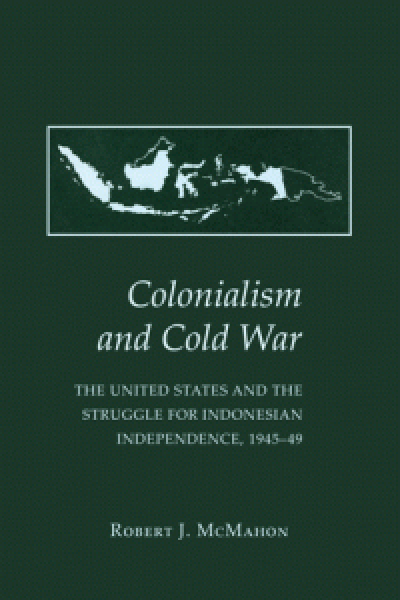Colonialism and Cold War: The United States and the Struggle for Indonesian Independence, 1945–49

McMahon, Robert J.
The disintegration of former colonial empires in Asia, Africa, and the Middle East after World War II profoundly affected the international balance of power, irrevocably altering the political map of the world. The United States was in a unique position to influence the outcome of the struggles for independence in the Third World. In Colonialism and Cold War, Robert J. McMahon looks closely at one area where American diplomacy played an important role in the end of the European imperial order: Indonesia, the archipelago that had been the jewel of the Dutch colonial empire since the early seventeenth century.
McMahon begins with an overview of the history of Dutch colonial rule in Indonesia and of the subsequent rise of nationalism among the peoples of the East Indies. He then traces the evolution of American policy toward Indonesia during the four years of the Dutch-Indonesian conflict, analyzing the factors that altered the course of that policy from initial support for the Dutch to halting and reluctant support for the nationalists.
The case of Indonesia illuminates American foreign relations as a whole in the postwar period. McMahon demonstrates the fundamental link between American colonial policy and the Cold War, showing that the official attitude toward Indonesia was determined by a global geopolitical strategy aimed at containing communism. His study places American policy in Southeast Asia, particularly Vietnam, in historical context by discussing the roots of that policy and comparing the cases on Indonesia and Indochina.
Investigators
Filters: 1981
